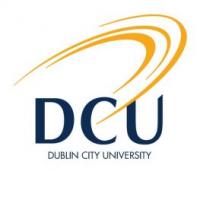MSc in Diagnostics and Precision Medicine
The MSc in Diagnostics and Precision Medicine is a new blended-learning programme that details how diagnostics and therapeutics are revolutionising healthcare and medicine by providing the right person with the right therapy at the right time.
Recent advances in the understanding of normal and diseased states has led to revolutionary new treatments for conditions such as cancer, inflammatory diseases and inherited diseases. Furthermore, advances in science and technology have resulted in the development of new biomedical assays to (a) diagnose diseases and conditions more accurately (b) classify disease more precisely (c) approach treatment more individually and (d) identify who is at risk of developing a disease or condition.
Such advances in diagnostics and therapeutics have ushered in an exciting new era known as Precision Medicine, which refers to prevention and treatment strategies that takes patient variability into account (people’s genes, environment and lifestyles) by providing the right patient with the right medicine at the right time. As an example, the treatment of several cancers have shifted away from the “One-Size-Fits-All” approach of treatment (e.g. chemotherapy) to a more focused and tailored strategy where targeted therapies are matched according to the molecular profile of a patient’s tumour. In this situation, variations in the sequence, structure or expression of that person’s DNA, RNA or protein (i.e. biomarkers) are analysed using clinically-validated diagnostic assays (commonly referred to as Companion Diagnostics) and used to stratify patients so that those who are likely to benefit from these therapies are identified and treated, while who are unlikely to benefit (and may experience unnecessary side effects) can receive alternative treatments. Similarly, molecular diagnostic assays are increasing used to predict the outcome of a patient’s disease (prognosis), and therefore medical treatments can be tailored accordingly.
The MSc in Diagnostics and Precision Medicine provides structured module-based training at postgraduate level on the latest advances in diagnostics and therapeutics and their relevance for Precision Medicine.
The programme is aimed at:
- Life scientists (including newly qualified graduates)
- Professionals from the diagnostics, biopharmaceutical, pharmaceutical and healthcare industries
- Medical Practitioners (including General Practitioners and clinicians-in-training)
Who wish to:
- Develop and broaden their knowledge of how new therapies including targeted therapeutics, cell-based therapies and gene modulation technologies are revolutionising the treatment of diseases such as cancer, inflammatory diseases and inherited diseases
- Understand how the integration of diagnostics and therapeutics are changing the landscape of healthcare and medicine through Precision Medicine
- Pursue a career in the biomedical diagnostics, biomedical science and biopharmaceutical industries
- Develop/consolidate their research skills with a view to undertaking further research (e.g. PhD or MD)
- Develop their critical analysis skills and enhance their professional development
Intakes
- Jan
- Sep
Application Processing Time in Days: 10
Application Process
Minimum English Language Requirements
| English Level Description | IELTS (1.0 -9.0) | TOEFL IBT (0-120) | TOEFL CBT (0-300) | PTE (10-90) | |
|---|---|---|---|---|---|
| Expert | 9 | 120 | 297-300 | 86-90 | |
| Very Good | 8.5 | 115-119 | 280-293 | 83-86 | |
| Very Good | 8 | 110-114 | 270-280 | 79-83 | |
| Good | 7.5 | 102-109 | 253-267 | 73-79 | |
| Good | 7 | 94-101 | 240-253 | 65-73 | |
| Competent | 6.5 | 79-93 | 213-233 | 58-65 | |
| Competent | 6 | 60-78 | 170-210 | 50-58 | |
| Modest | 5.5 | 46-59 | 133-210 | 43-50 | |
| Modest | 5 | 35-45 | 107-133 | 36-43 | |
| Limited | 4 | 32-34 | 97-103 | 30-36 | |
| Extremely Limited | < 4 | < 31 | < 93 | < 30 |
Job Opportunity Potential
The Careers Service is DCU’s central hub for employability. Through learning and development initiatives, we empower students to shape their futures to become successful in their chosen career paths; provide opportunities to connect students with the agile nature of the world of work; and be a leading player in the talent development and employer engagement for our local, national and global communities.
PSW Opportunity
Honours undergraduate degree holders (Level 8) can stay in Ireland to work (and/or to seek employment) for 12 months after finishing their studies, and
Masters and postgraduate students (Levels 9 and 10) can work for up to 2 years after they graduate.
Admission Requirement / Eligibility Criteria
- Course Code: DC739
- Course Type: Full Time
- Course Level: Masters/PG Degree
- Duration: 01 Year
-
Total Tuition Fee:
14500 EUR
Annual Cost of Living: 10500 EUR
Application Fee: 50 EUR
Similar Programs
- MSc in Biotherapeutics at Dublin City University (DCU)
- MSc in Astrophysics & Relativity at Dublin City University (DCU)
- MSc in Climate Change: Policy, Media and Society (MCC) at Dublin City University (DCU)
- MSc in Emerging Media at Dublin City University (DCU)
- MSc in Science and Health Communication at Dublin City University (DCU)
- Master of Science in Computing (with Major Options) at Dublin City University (DCU)

